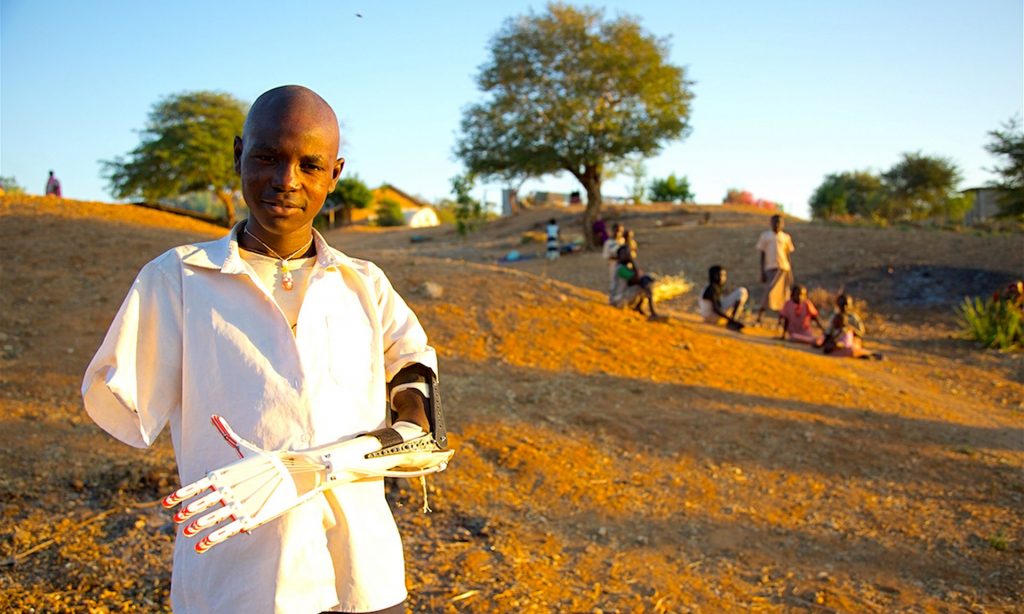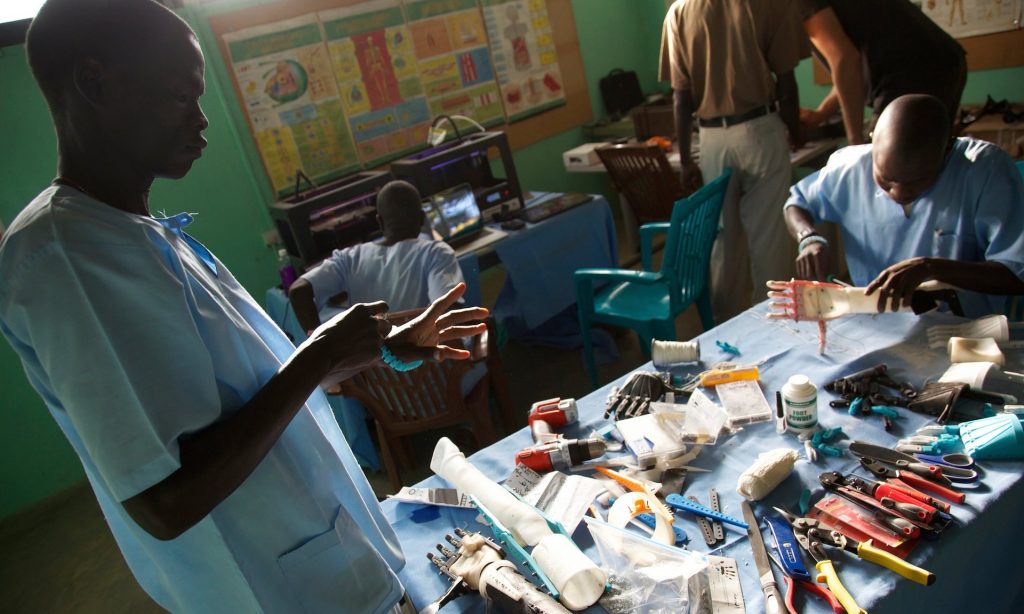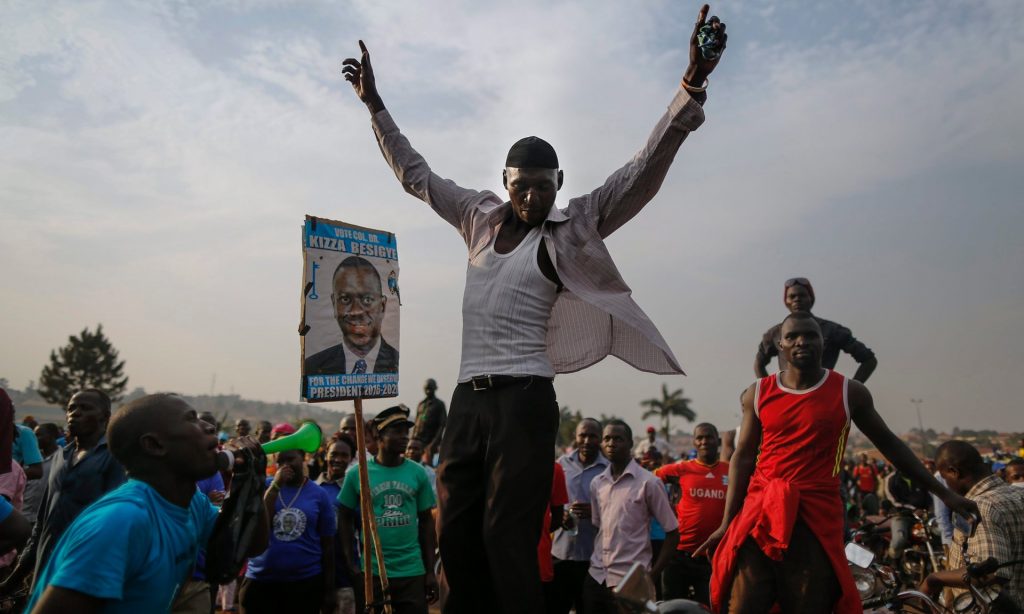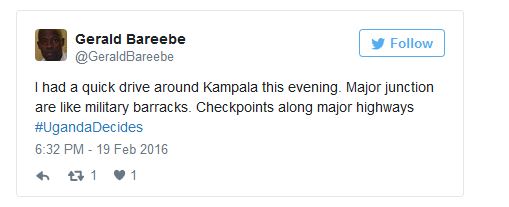
Photograph: Not Impossible/Project Daniel
Africa may be taking a great leap forward into the digital era. But when technology reaches a new area, the hackers are never far behind.
Many are familiar with the African hacker cliche: revolving around a badly written email from someone, claiming to be a friend, for example, who has been mugged and needs an urgent money transfer.
But the reality is more nuanced. Smartphones and Facebook may be ubiquitous, but the continent still lags behind in other basic infrastructure, such as reliable power.
These gaps have created the perfect hacking environment, according to the technology expert Ethan Zuckerman, who describes Africa’s hackers as “world-class tech innovators”.
Hackers have also stepped in to help citizens living under oppressive regimes and those who are aware of endemic political corruption but feel powerless to stop it.
Here are seven of the continent’s most innovative, sometimes controversial, technology hacks.
3D-printed limbs
There was a mild moral panic when it transpired that 3D printers could be used to make anything from handguns to drugs. But one project has been using the technology – which transforms digital files into physical objects – to replace limbs that children lost in the civil war in South Sudan.
Using a laptop, bunches of plastic and cables and two 3D printers, the American startup Not Impossible Labs created its first limb for a boy called Daniel in 2013. The team left the equipment behind and continue to supply the plastic to Daniel’s village to continue making prosthetic limbs.

Photograph: Not Impossible/Project Daniel
After the success of the Daniel project, one inventor took the technology a step further by designing the Robobeast – a 3D printer that is durable enough “to be thrown in the back of a Land Rover, carted off into the bush, and to start working as soon as the power is on”, says the tech blog Htxt Africa. In other words the perfect 3D printer for Africa, as long as a power supply can be found.
Angolans fool the free internet
Internet for all is one of the current crusades of Mark Zuckerberg and his tech peers, who have launched free services, otherwise known as zero-rate services, across many countries in Africa.
The rationale being that some internet, albeit restricted, is better than nothing.
Both Facebook and Wikipedia have rolled out their services in Angola where they presumably had not banked on hackers having a field day – hiding pirated films, music and games in the internet they give away for free.
People started to upload the files to free Wikipedia pages and shared the links on closed Facebook pages, creating “a totally free and clandestine file-sharing network in a country where mobile internet data is extremely expensive”, writes Vice.
The debate over what to do about it is ongoing. To cut off free services undermines the mission. But so would letting piracy spiral out of control.
Defying social media bans
The strongman president Yoweri Museveni has led Uganda for 30 years – having previously scrapped presidential term limits and cracked down heavily on opposition parties.
But this year’s election race was more vigorous than in previous years. Opposition candidates put up a spirited fight and thousands of Ugandans turned to social media to support them and play citizen watchdogs on election day.
But the online chatter did not please the government, which blocked social media sites including Facebook, Twitter and WhatsApp.
Museveni said the move was to “stop people telling lies” but citizens, undeterred, started to share details of virtual private networks (VPNs) enabling voters to essentially trick the internet into thinking they were accessing it from a different country.
The search for “VPN from Uganda” spiked dramatically on Google and the opposition politician Amama Mbabazi tweeted out advice on the right app to use.

Photograph: Dai Kurokawa/EPA
Sure enough #UgandaDecides kept trending, even if some of those people were tweeting “from Canada”.
Opening up South Africa’s constitution
South Africa’s constitution, which turned 20 this year, is in crisis. In March the president, Jacob Zuma, narrowly survived impeachment after a court ruled that he had failed in one of his principle jobs to uphold it.
Instead he was making expensive upgrades to his private residence with public funds.
“Never again should political power be allowed to run amok, and act in a manner that is counter to the nation’s interests,” argued an editorial in South Africa’s The Times, summing up the national feeling.
But a group of hackers from Johannesburg say the language of law is so complicated that many do not realise how it should protect them.
The group has begun work on a website that will help South Africans find the parts of the constitution that are relevant to them quickly and efficiently.
Drawn up at the end of apartheid, the 180-page constitution is one of the most liberal and far-reaching in the world, says Adam Oxford, one of the people behind the project. The law protects workers’ rights and enabled South Africa to be the first country on the continent to legalise gay marriage.
“We want to help people understand their rights, but to also get excited about the laws of their country,” says Oxford. “That would be a very positive outcome.”
Calling out quacks
Last year, the story of a fake gynaecologist who anaesthetised Kenyan women before raping them shocked the country and highlighted serious failings in the healthcare system.
One of the major issues is a lack of regulation, which allows unqualified medics to treat, and profit from, their oblivious patients.
Code for Africa came up with a solution: Dodgy Doctors, an online verification tool that helps patients check out their doctor’s credentials. The web-based app allows patients in Kenya and Nigeria to search for their doctors on the national database and report them if they cannot find their name on the list.
Users can also cross-reference how much they are being charged for medicines.
When Anonymous attacks
Hell hath no fury like an attack at the hands of hacktivists Anonymous who, in less than a year, have gone after the governments of Kenya, Angola , South Africa, Uganda and Rwanda.
The group, operating under the Operation Africa banner, with the hashtag #OpAfrica, says it is targeting those who “enable and perpetuate corruption on the African continent”, and those responsible for child abuse and child labour.
In April it leaked a selection of the terabyte of data it claims to have obtained from the Kenyan ministry of foreign affairs, exposing details of security arrangements, an arms deal with Namibia and international trade deals.
The previous month, Operation Africa attacked 20 Angolan government websites after 17 young activists were jailed for plotting a “rebellion”, a sentence decried by many as a travesty of justice.
The group pledged to keep embarrassing governments until they “end their corruption and feed the poor”.


